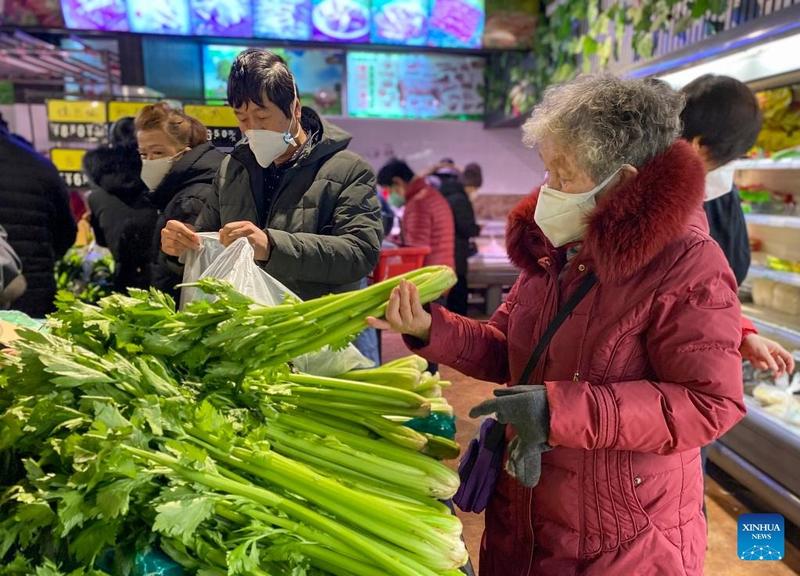 Customers buy groceries at a supermarket in Urumqi, Northwest China's Xinjiang Uygur autonomous region, Nov 28, 2022. (PHOTO / XINHUA)
Customers buy groceries at a supermarket in Urumqi, Northwest China's Xinjiang Uygur autonomous region, Nov 28, 2022. (PHOTO / XINHUA)
The relaxing of China's pandemic prevention and control policy is in line with the weakening of the virus' lethality, the high vaccination rate in the nation and people's psychological readiness.
Yet although, as with every adjustment to the country's COVID-19 policy, the decision has been made with extreme prudence, based on scientific evidence, there are those trying to create a stir about the move. It is no coincidence that these are the ones who did the same when the country strengthened its pandemic prevention and control three years ago.
What these finger-pointers care about is not Chinese people's lives and well-being, which the country has done a good job in protecting, but whether they can portray the country's COVID-19 policy as a failure.
To their dismay, China's dynamic clearing policy — which, contrary to being rigid as they have tried to depict, has been adjusted continuously in light of the changing epidemic situation — has proved effective.
It is no coincidence that the world's most populous country, which has more senior residents than all developed countries combined, has a relatively low COVID-19 mortality rate. The country has made the best of its institutional advantages to make up for its disadvantages in unevenly distributed and lack of quality medical resources to protect people's lives and health to the maximum.
Many developed countries gave up their struggle with the virus at an early time when the virus was still lethal and contagious, because they were unwilling to sustain the fight. This proved costly in terms of lives lost.
The new stage of the fight with the virus in China poses new requirements for both governments at various levels and society as a whole. On the one hand, the former need to divert their attention from expanding the capacity for nucleic acid testing and collective quarantines to ensuring there are sufficient medical resources to treat severe cases, as well as necessary medicines and basic life necessities for the public.
On the other hand, people need to continue to make use of what they have learned over the past three years to minimize the chance of infection, and to take care of themselves and their families should they become infected with the virus.
The dramatic soaring of air ticket, railway and hotel bookings and the rise in stock prices for tourism and catering companies, as well as the empty shelves of drug stores these days demonstrate the people's full awareness of both the opportunities and the challenges that will come with the easing of the virus control measures. It is not yet the moment to declare a victory over the virus. But because it adhered to the dynamic clearing policy for so long, the country is now in a position to say that it has taken a big stride toward that.



